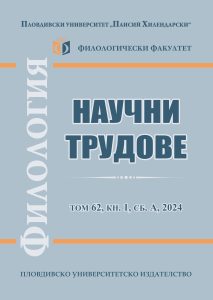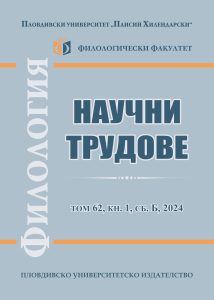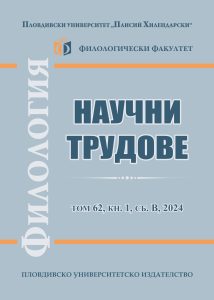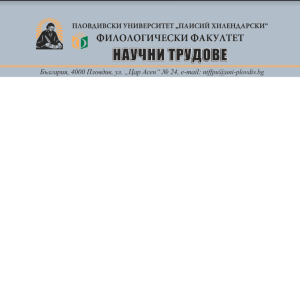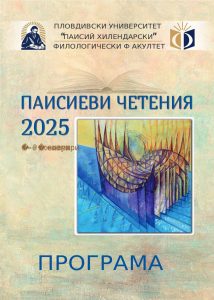VOL. 56, BOOK 1, PART А, 2018, pp. 152 – 168 Full text (Bg)
Author: Miroslava Vatova
Affiliation: St. Cyril and St. Methodius University of Veliko Tarnovo
Abstract
The present paper deals with the concepts of GOOD and BAD as reflected in the Bulgarian lexical system from the standpoint of Cognitive Metaphor Theory, developed by G. Lakoff and M. Johnson. The study is based on the view that the concepts of GOOD and BAD undoubtedly belong to the natural kind of human experience, but nevertheless require definition by means of metaphors as the concepts do not exist objectively in the physical world but emerge from human understanding. The analysis of the Bulgarian linguistic data reveals the conceptualization of the two concepts based on the notion of HEART – on the one hand, thought to be objects, situated in human heart, and, on the other hand, part of our naïve notion of HEART is projected on the less understandable conceptual structures to understand them.
Key words: cognitive metaphor, cognitive metonymy, concepts of GOOD and BAD, figure-ground, HEART, SPIRIT, SOUL


